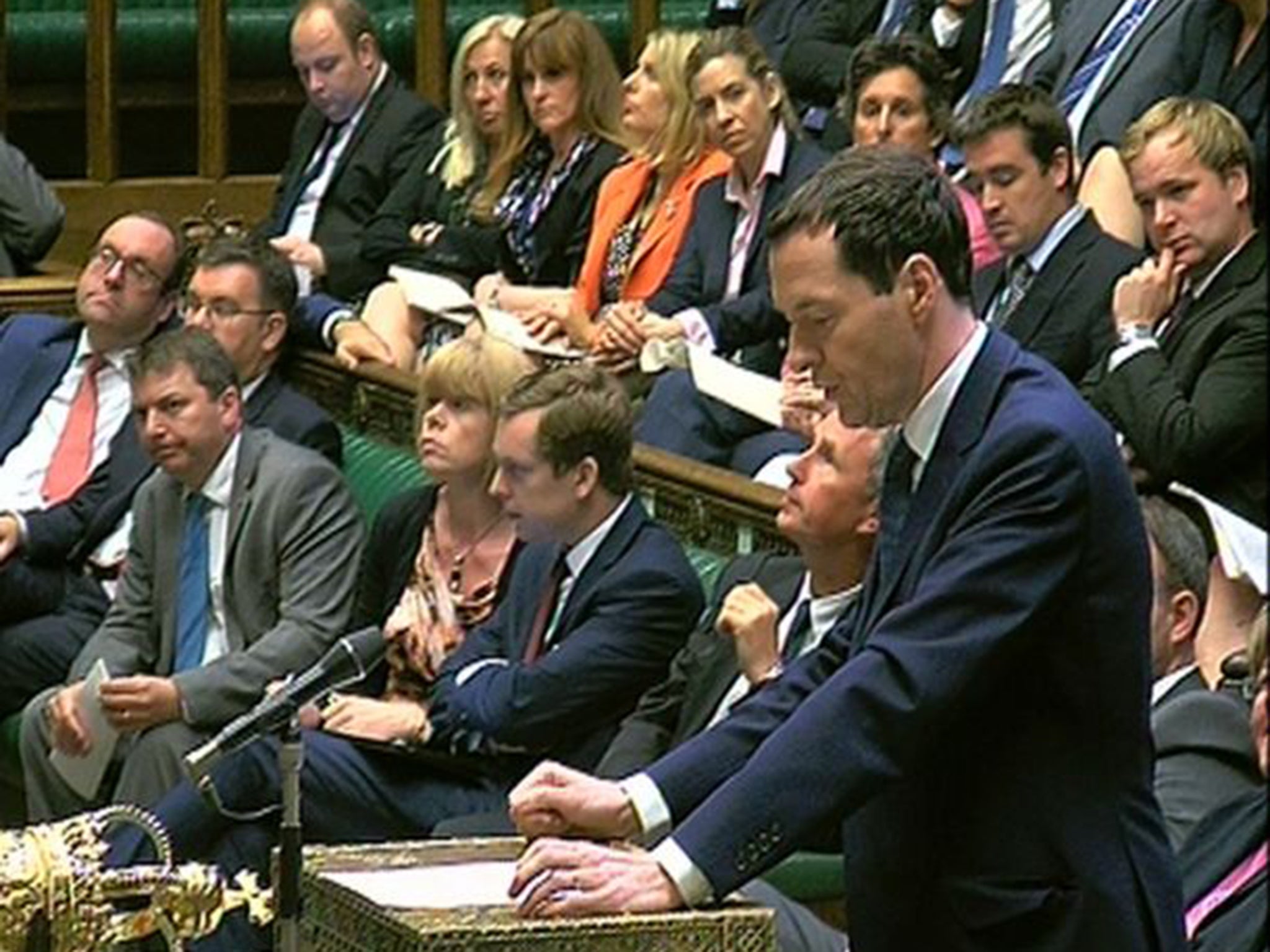Greece debt crisis: Britain appeals to both sides to take their 'one last chance' to resolve situation
The Government is advising holidaymakers heading for Greece to take enough medical supplies with them after reports of shortages and showing pensioners living there how to switch payments of their UK pensions to non-Greek bank accounts

Britain has appealed to Greece and its eurozone partners to take their “one last chance” to solve the Greek debt crisis before it spirals out of control.
George Osborne, the Chancellor, told MPs: “This is a critical moment. No-one should be under any illusions. The situation risks going from bad to worse. Britain will be affected the longer the Greek crisis lasts, and the worse it gets.” He added: “There is no easy way out. But even at the eleventh hour we urge the eurozone leaders and Greece to find a sustainable solution.”
Mr Osborne expected the financial situation in Greece to “deteriorate rapidly” - as the banks run out of money - if there was no signal of new talks soon.
Prime Minister David Cameron discussed the crisis by telephone with Angela Merkel, the German Chancellor. But Britain was largely left on the sidelines as leaders of the other 18 eurozone nations prepared to meet Alexis Tsipras, the Greek Prime Minister, in Brussels on Tuesday. Downing Street insisted that Mr Cameron would attend a meeting of all 28 EU leaders if and when that became necessary. It said it was premature to speculate on the cost to Britain of any EU-wide emergency relief to Greece, saying that humanitarian aid would be largely a matter for the eurozone.

Mr Cameron chaired a meeting of ministers and officials including Bank of England Governor, Mark Carney. It agreed to send extra consular staff to the Greek islands of Crete, Rhodes, Corfu and Zakynthos to advise British holidaymakers there.
The Government is advising Britons heading for Greece to take enough supplies, including prescription medicines, with them after reports of shortages of medical supplies. The Department of Work and Pensions has advised 2,000 British pensioners living in Greece how to switch payments of their UK pensions to non-Greek bank accounts.
Downing Street and the Treasury refused to be drawn on whether they want Greece to leave the single currency. But Lord Lawson of Blaby, the Conservative former Chancellor, said: “There will be no solution to the Greek crisis without Greece leaving the eurozone altogether. That is necessary for Greece and it's necessary for the eurozone."
Although they would not admit it publicly, Conservative Eurosceptics would not mind a bout of turmoil in the eurozone, with contagion spreading to countries like Spain or Italy after a Greek exit from the euro. “This shows the whole EU project is bust,” one said. The anti-EU brigade hopes the crisis will boost the prospects of an Out vote in the referendum on EU membership Britain will hold by 2017.
Some Eurosceptics believe the Greek referendum offers lessons for Mr Cameron as he negotiates a new EU deal for Britain. They argue that it strengthens the case for the Prime Minister to stage two referendums – to encourage an Out vote in the first one, so he would win a much better deal from the EU and then recommend an In vote in the second one. The idea is being pushed by Dominic Cummings, an adviser to Michael Gove when he was Education Secretary, who is setting up the Out campaign.
But Mr Cameron wants to conclude the renegotiation as soon as possible. “One referendum is quite enough,” said one aide.
British officials believe the crisis in Greece could give Mr Cameron more negotiating clout. It could speed up reforms to the eurozone, which would require a change to the EU’s governing treaty and the unanimous support of all 28 EU members. The inevitable horse-trading might give the Prime Minister more chance of securing his demands. One of them is increasingly relevant – safeguarding the EU members outside the eurozone, so it does not determine all EU policies. Greece may be about to join them.
Join our commenting forum
Join thought-provoking conversations, follow other Independent readers and see their replies
Comments